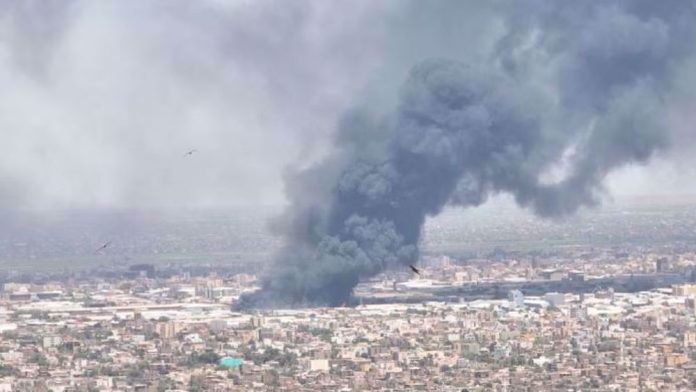Sudan crises, in order to put an end to the nearly three months of brutal fighting that have devastated the North African nation, the Sudanese army has declined to participate in the meeting of a regional bloc.
This came after the rival paramilitary Rapid Support Forces (RSF) and the Sudanese army were both invited to the Intergovernmental Authority on Development (IGAD) meeting on Monday in the capital of Ethiopia.
However, the Sudanese army charged that Kenya, the meeting’s chair, had favored the RSF.
Abdel Fattah al-Burhan, the army chief, and Mohamed Hamdan Dagalo, who is in charge of the RSF, were engaged in a power struggle when fighting broke out in Sudan in mid-April.
However, the RSF sent a representative to the quartet meeting, which was attended by Kenya, South Sudan, Djibouti, and Ethiopia, even though neither Burhan nor Dagalo personally attended the talks in Addis Ababa.
Following the meeting on Monday, the quartet released a statement lamenting “the regrettable absence of the delegation of the Sudanese Armed Forces in spite of the invitation and confirmation of attendance.”
The quartet stated that it had agreed to “mobilize and concentrate the efforts of all stakeholders towards delivering a face-to-face meeting between the leaders of the warring parties.”
The opposing generals were also urged to “immediately stop the violence and sign an unconditional and indefinite ceasefire.”
The gathering took place the day after Antonio Guterres, the secretary general of the UN, issued a warning that a full-fledged civil war in Sudan was imminent and might spread to nearby nations, endangering regional stability.
According to a statement from the UN chief’s spokesperson, Farhan Haq, Guterres “remains deeply concerned that the ongoing war between the armed forces has brought Sudan to the verge of a full-scale civil war, potentially destabilizing the entire region.”
Residents of Khartoum, the capital city of Sudan, reported battles and airstrikes in various neighborhoods during the meeting, with some claiming rockets hit the homes of civilians.
Witnesses also reported fighting in El-Obeid, the commercial center and capital of North Kordofan, which is located 350 kilometers (220 miles) south of Khartoum.
Up to this point, the conflict in Sudan has claimed the lives of about 3,000 people, according to the most recent statistics.
According to the International Organization for Migration, the fighting has forced nearly three million people from their homes, including nearly 700,000 who have fled to nearby nations, particularly Chad and Egypt.













